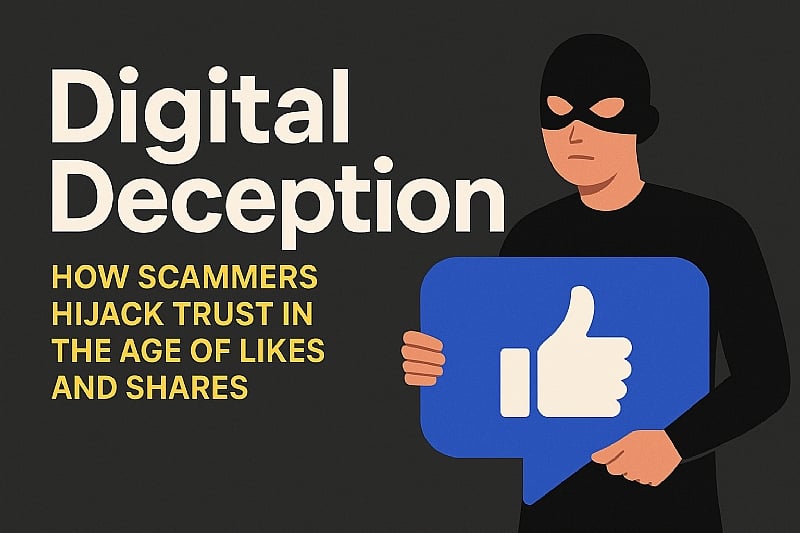In the digital marketplace of attention, scammers have mastered the art of manipulation. They don’t just steal data—they steal confidence, urgency, and emotion. And they do it by weaponizing psychology.
🎭 The Anatomy of a Scam: More Than Just a Lie
Scammers don’t rely on brute force. They rely on you. Your instincts. Your hopes. Your fears. Their tactics are rooted in behavioral science—designed to bypass logic and trigger impulse.
Authority Illusion: They pose as trusted figures—government officials, tech support, even celebrities. The goal? To borrow credibility and silence doubt. Urgency Traps: “Act now or lose everything.” By creating artificial deadlines, scammers short-circuit your ability to pause and verify. Scarcity Hooks: “Only 3 left!” “Limited-time offer!” These messages exploit our fear of missing out, nudging us into rash decisions. Emotional Hijacking: Whether it’s panic (“Your account is compromised!”) or hope (“You’ve won a Tesla!”), scammers stir emotion to cloud judgment. Social Proof Fakery: Fake testimonials, cloned profiles, and bot-generated comments simulate popularity and trust.
These tactics aren’t random—they’re calculated. And they’re evolving.
📱 Recent Scams That Hit Close to Home
Let’s name the beast. These are real scams circulating on social media in 2025:
“Mark Zuckerberg Giveaway”: Impersonation scams promising cash and luxury cars for likes and comments. Victims are lured into sharing personal info or clicking malicious links. Romance Deepfakes: AI-generated profiles that mimic real people, building emotional bonds before requesting money for emergencies or travel. Crypto Investment Lures: Fake influencers promote “guaranteed” returns via sketchy platforms. Victims are urged to invest quickly before the “window closes.” Job Offer Scams: Fraudulent recruiters offer remote jobs, then demand upfront payments for training or equipment. Charity Exploits: Scammers hijack trending crises—earthquakes, floods, political unrest—to solicit donations through fake pages.
Each scam is a mirror, reflecting our vulnerabilities back at us. And each one is a call to action.
🛡️ Reclaiming Digital Trust: What You Can Do
Pause before you click. Scammers thrive on speed. Slow down. Verify identities independently. Don’t trust profile pictures or usernames alone. Educate your circles. Share stories, not just warnings. Make digital literacy communal. Report and block. Every scam you flag is one less victim tomorrow.
Retired Senior Citizen
Teshie-Nungua
[email protected]


